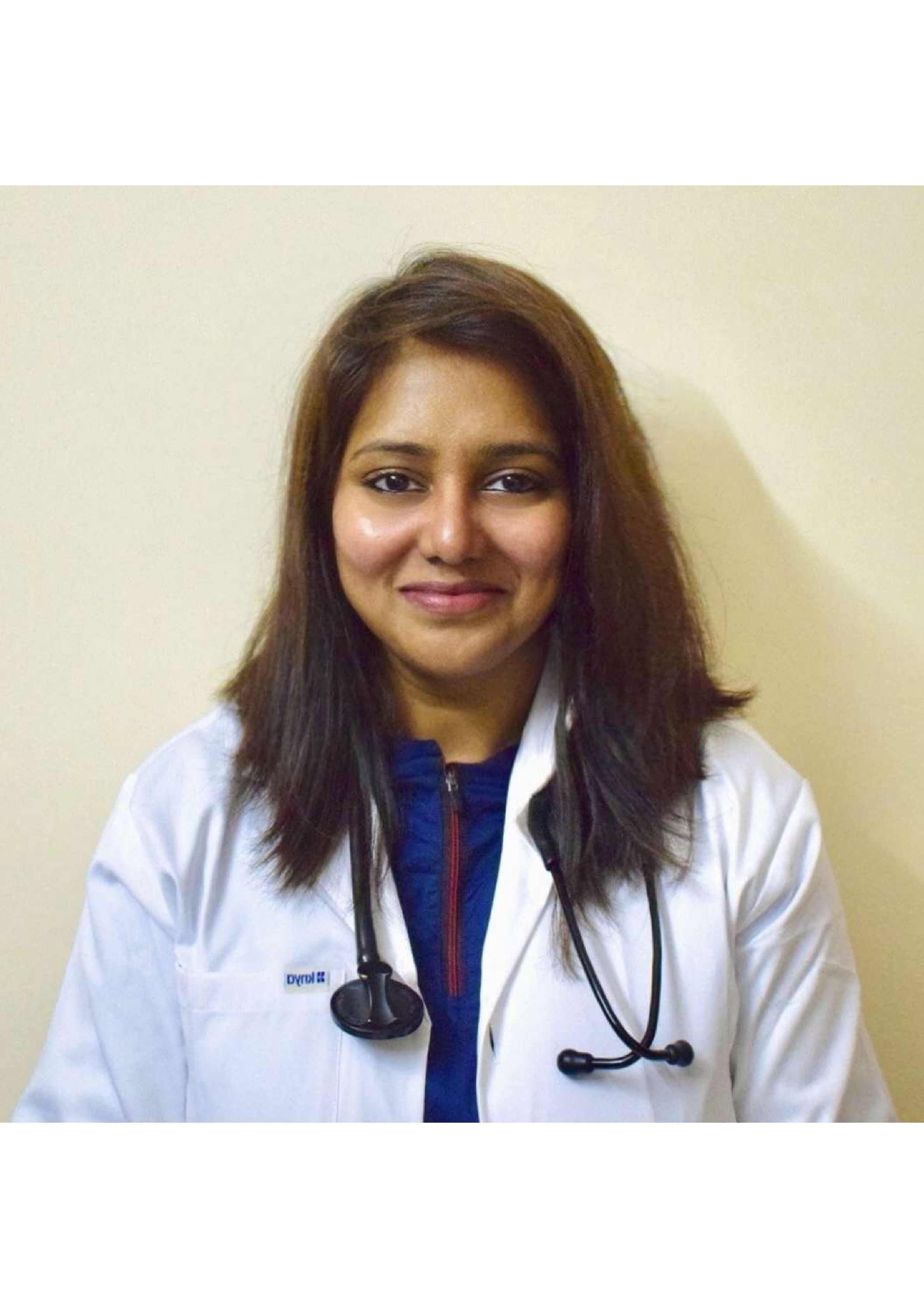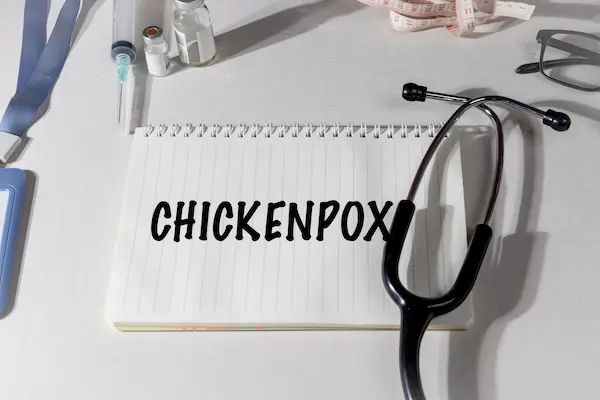Chicken Pox: Symptoms, Causes, and Treatment
Learn about the symptoms, causes, and effective treatments for chickenpox. Our comprehensive guide helps you identify the rash, understand how the virus spreads, and find relief from itching and discomfort.


Chickenpox, or varicella, is a pervasive and highly transmissible exanthematous illness principally observed among pediatric populations, but adult cases also arise with noteworthy frequency. The illness is ordinarily mild in otherwise healthy hosts; nevertheless, exceptional hematological, dermatologic, or neurologic complications may emerge, particularly in individuals exhibiting significant immunocompromise. A thorough knowledge of symptomatology, etiology, and therapeutic modalities permits prudent surveillance and judicious intervention.
What is Chickenpox?
Varicella is ethologically linked to varicellazoster virus (VZV), a member of the alpha herpesvirus subfamily. Transmission occurs via direct mucosal contact with vesicular fluid or aerosolized particles expelled during cough or sneeze. The resultant prodromal and exanthematous phases of the illness are characterized by pruritic, vesicular lesions that rapidly progress to crusted papules covering the entire integumentary system.
Protective immunity is generally established after a primary varicella episode, rendering subsequent infections rare; however, latent virus persists in the sensory and autonomic ganglia and may reactivate, many decades later, as herpes zoster. The latter manifests as a dermatomal, painful vesicular lesion, thereby indicating the chronic, albeit subclinical, presence of the primary varicella agent.
Consult a General Physiscian for Personalised Advice
Symptoms of Chickenpox
Clinical manifestations typically arise 10 to 21 days postexposure to varicellazoster virus (VZV). Prodromal symptoms comprise:
- Low grade to moderate pyrexia
- Malaise with accompanying cephalalgia
- Anorexia
- Pharyngodynia
Rash evolution occurs 24 to 48 hours postprodromal onset:
1. Macules appear, generally commencing on the facial, thoracic, and spinal areas, with a characteristic redtopink hue.
2. Macules evolve to tense vesicles filled with clear fluid; vesicles coalesce, rupture, and subsequently crust.
3. Additional crops of lesions may emerge over 3 to 7 days.
Eruptions may extend to the scalp, palatine mucosa, or genital region. Intense pruritus, coupled with a tendency to excoriate, may predispose to secondary bacterial superinfection or dermal scarring.
Causes and Risk Factors
Transmission occurs via:
- Contiguity with vesicular fluid.
- Aerosolization of virusladen droplets during cough or sneeze.
- Fomites, although this route is comparatively rare.
Population with Elevated Susceptibility
- Children lacking immunization, particularly those under 12 years.
- Neverinfected adults.
- Gravidas; intrauterine varicella may impart severe complications.
Hosts with immunocompromised states, including advanced human immunodeficiency virus (HIV) or iatrogenic immunosuppression secondary to chemotherapeutic regimens.
How Chickenpox Diagnosis is Established
Chickenpox is typically identified through visual examination of the characteristic rash combined with the clinical history. Laboratory verification is seldom required, but when the circumstance is clinically warranted, the following tests may be utilized:
- Serological assays to detect varicella zoster virus-specific antibodies
- Viral culture using vesicular fluid obtained from fresh lesions to confirm infection.
- Seek clinical evaluation immediately when chickenpox is suspected, particularly if the patient exhibits sustained high fever, pronounced headache, or respiratory distress.
Management and Supportive Care
Most chickenpox infections progress to resolution within one to two weeks without advanced intervention. Management is predominantly symptomatic, with the goal of ameliorating clinical discomfort and curtailing the risk of secondary complications.
Pharmacologic Interventions
- Acyclovir or alternate antiviral agents may be indicated in cases of severe varicella or in populations at elevated risk, such as adolescents, pregnant individuals, or immunocompromised patients.
- Antipyretics, predominantly paracetamol, can be supplemented to curtail fever and alleviate mild pain. Unless clinically directed, the administration of aspirin in pediatric populations is contraindicated due to the association with Reye’s syndrome.
- Antihistaminic formulations, such as diphenhydramine, may be utilized to mitigate pruritus.
Supportive Strategies and SelfManagement
1. Maintain cutaneous hygiene by cleansing with mild, nonirritating soap and tepid water to deter bacterial superinfection.
2. Calamine lotion or colloidal oatmeal baths may be applied to diminish pruritus.
3. Keeping the patient’s fingernails closely trimmed reduces the likelihood of excoriation and subsequent infection.
4. Encourage adequate oral fluid intake to prevent dehydration.
5. Dress the patient in lightweight, nonabrasive garments to limit mechanical irritation of the rash.
Chickenpox Prevention Overview
Vaccination remains the predominant strategy for the prevention of varicellazoster virus (chickenpox) infections. The varicella vaccine is both well tolerated and efficacious within the recommended population.
- Pediatric schedule: administer two doses, the first between 12 and 15 months of age and the second at 4 to 6 years.
- Adolescents and adults without a confirmed history of varicella illness should receive a single dose, with a second dose recommended for those at increased risk.
Supplemental Preventive Strategies
- Limit face to face contact with confirmed varicella cases.
- Routinely disinfect commonly touched environmental surfaces in residential settings when a household member is ill.
- Quarantine symptomatic individuals until all vesicular lesions have crusted and the crusts are dry.
When to Consult a Medical Provider
Although the clinical course is generally benign, medical evaluation is warranted for the following clinical indicators:
- Persistence of temperature exceeding 39°C (102°F) for four consecutive days.
- Ocular involvement, vesicular lesions that exhibit marked redness, increased warmth, and tenderness, raising the concern for secondary bacterial infection.
- Neurological symptoms, respiratory distress, or altered mental status, which may herald serious, albeit infrequent, complications.
Conclusion
While chickenpox is commonly a selflimited disease, the symptomatic burden and the potential for severe sequelae underscore the value of vaccination to safeguard individual and herd health. Symptomatic management should proceed in concert with clinical surveillance, and medical advice should be obtained for the aforementioned indicators.
Require Professional Guidance?
Should you suspect exposure to varicellazoster virus or are considering immunization, you may secure a teleconsultation or arrange diagnostic testing via the Apollo 24|7 platform. Empower yourself with knowledge and protect your wellbeing.
For in-depth information regarding the vaccination schedule, contraindications, or the evidencebased management of eruptive manifestations, please pose your inquiries in the comment section. Your health is our priority.
Consult a General Physiscian for Personalised Advice
Consult a General Physiscian for Personalised Advice

Dr. Anand Ravi
General Physician
2 Years • MBBS
Bengaluru
PRESTIGE SHANTHINIKETAN - SOCIETY CLINIC, Bengaluru

Dr. Vivek D
General Physician
4 Years • MBBS
Bengaluru
PRESTIGE SHANTHINIKETAN - SOCIETY CLINIC, Bengaluru

Dr Syed Mateen Pasha
General Physician
2 Years • MBBS
Bengaluru
PRESTIGE SHANTHINIKETAN - SOCIETY CLINIC, Bengaluru

Dr. Syed Ismail Ali
General Practitioner
7 Years • MBBS
Hyderabad
Apollo 24|7 Clinic, Hyderabad

Dr. Srujana Mulakalapalli
General Physician/ Internal Medicine Specialist
5 Years • MBBS, MD (GENERAL MEDICINE)
Bengaluru
Apollo Medical Center, Marathahalli, Bengaluru
(25+ Patients)
Consult a General Physiscian for Personalised Advice

Dr. Anand Ravi
General Physician
2 Years • MBBS
Bengaluru
PRESTIGE SHANTHINIKETAN - SOCIETY CLINIC, Bengaluru

Dr. Vivek D
General Physician
4 Years • MBBS
Bengaluru
PRESTIGE SHANTHINIKETAN - SOCIETY CLINIC, Bengaluru

Dr Syed Mateen Pasha
General Physician
2 Years • MBBS
Bengaluru
PRESTIGE SHANTHINIKETAN - SOCIETY CLINIC, Bengaluru

Dr. Syed Ismail Ali
General Practitioner
7 Years • MBBS
Hyderabad
Apollo 24|7 Clinic, Hyderabad

Dr. Srujana Mulakalapalli
General Physician/ Internal Medicine Specialist
5 Years • MBBS, MD (GENERAL MEDICINE)
Bengaluru
Apollo Medical Center, Marathahalli, Bengaluru
(25+ Patients)
